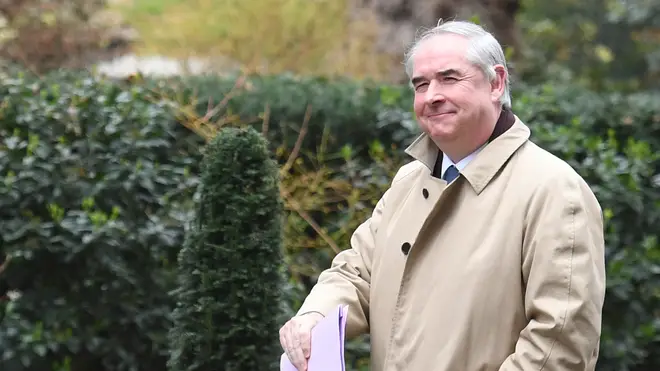
Ian Payne 4am - 7am
12 March 2019, 11:12 | Updated: 12 March 2019, 11:18

Attorney General Geoffrey Cox has said there is no change to the legal risk from Theresa May's changes to the Brexit withdrawal deal.
Mr Cox, the government's legal expert, was looking at whether the new agreements the Prime Minister got in Strasbourg late last night would change his view of the Northern Irish backstop.
In his legal advice, he said that new provisions "reduce the risk" of the UK being "indefinitely and involuntarily" held in the backstop, but said that "the legal risk remains unchanged" that the UK would have no legal means of exiting without EU agreement.
He wrote: "I now consider that the legally binding provisions of the Joint Instrument and the content of the Unilateral Declaration reduce the risk that the United Kingdom could be indefinitely and involuntarily detained within the Protocol's provisions at least in so far as that situation had been brought about by the bad faith or want of best endeavours of the EU.
"It may be thought that if both parties deploy a sincere desire to reach agreement and the necessary diligence, flexibility and goodwill implied by the amplified duties set out in the Joint Instrument, it is highly unlikely that a satisfactory subsequent agreement to replace the Protocol will not be concluded.
"But as I have previously advised, that is a political judgment, which, given the mutual incentives of the parties and the available options and competing risks, I remain strongly of the view it is right to make.
"However, the legal risk remains unchanged that if through no such demonstrable failure of either party, but simply because of intractable differences, that situation does arise, the United Kingdom would have, at least while the fundamental circumstances remained the same, no internationally lawful means of exiting the Protocol's arrangements, save by agreement."